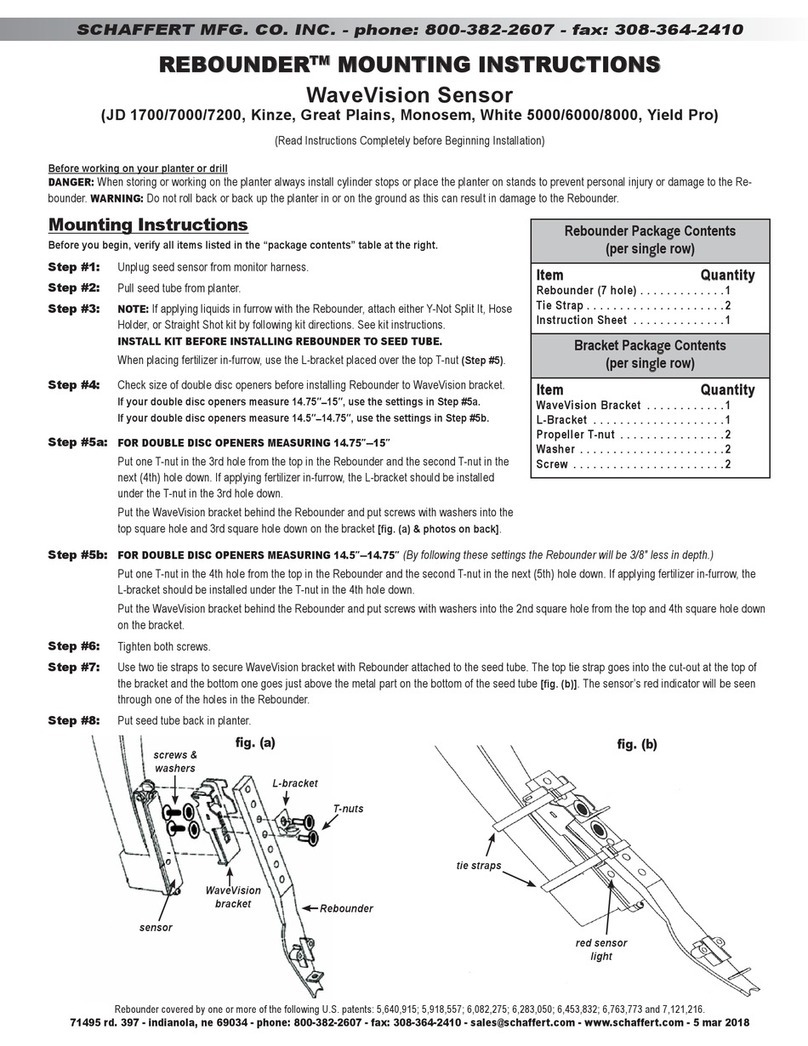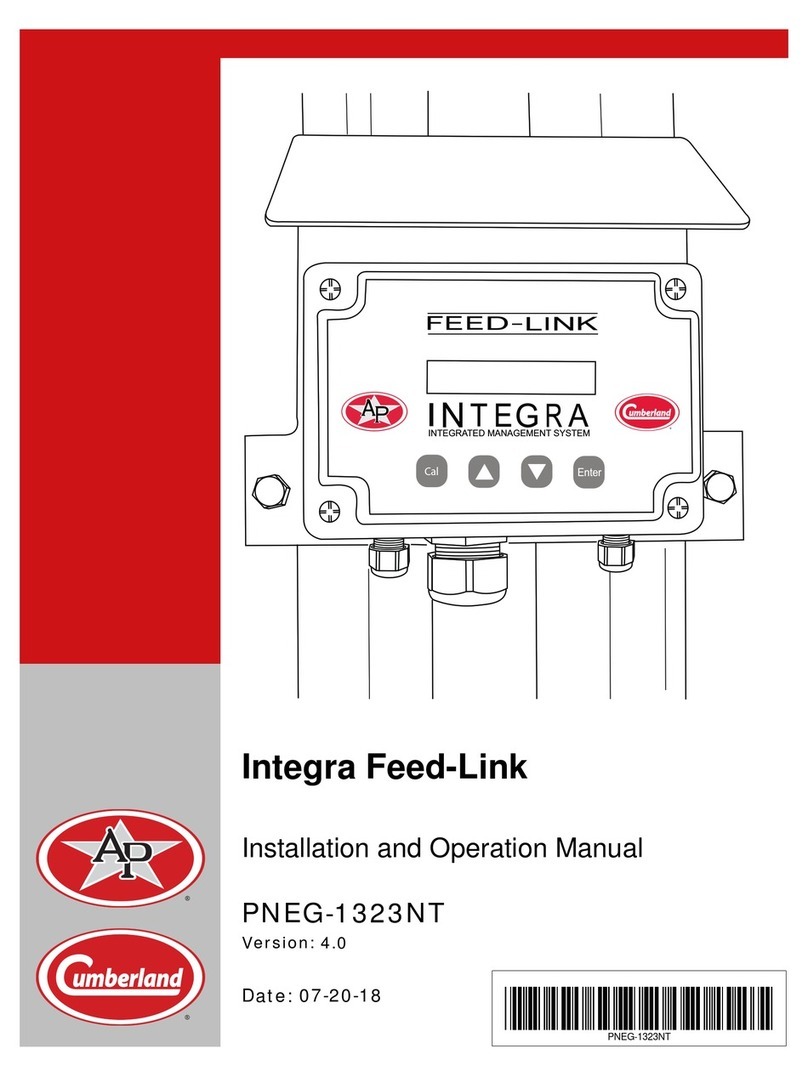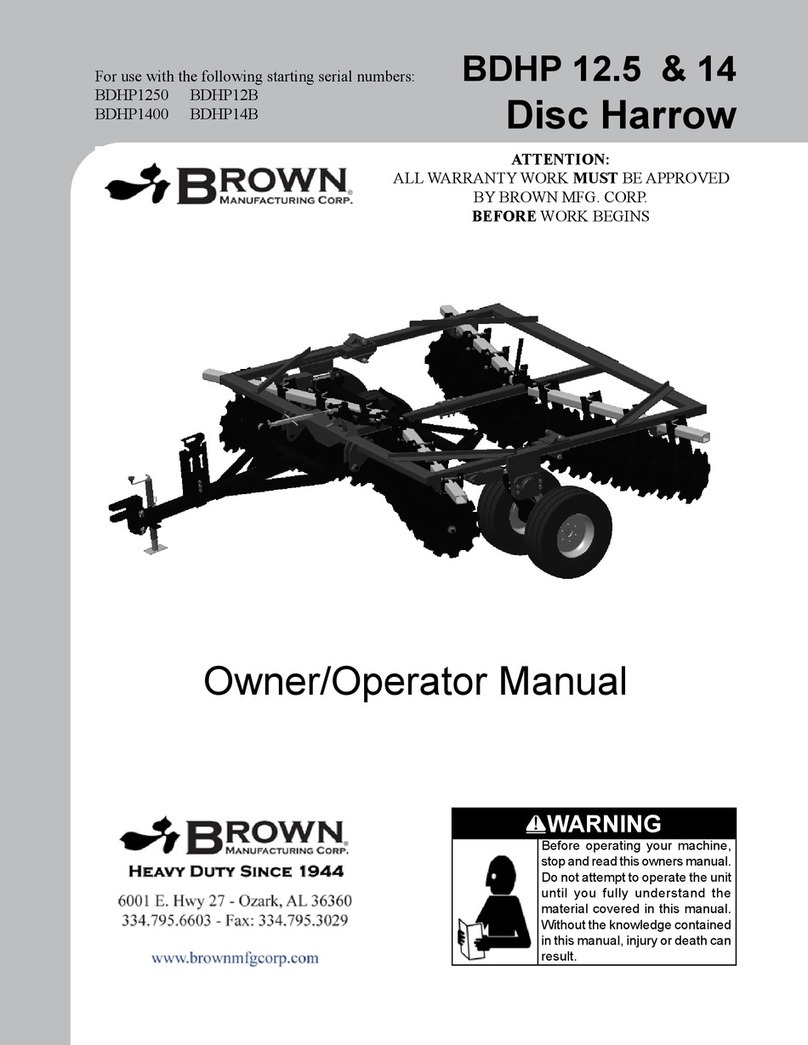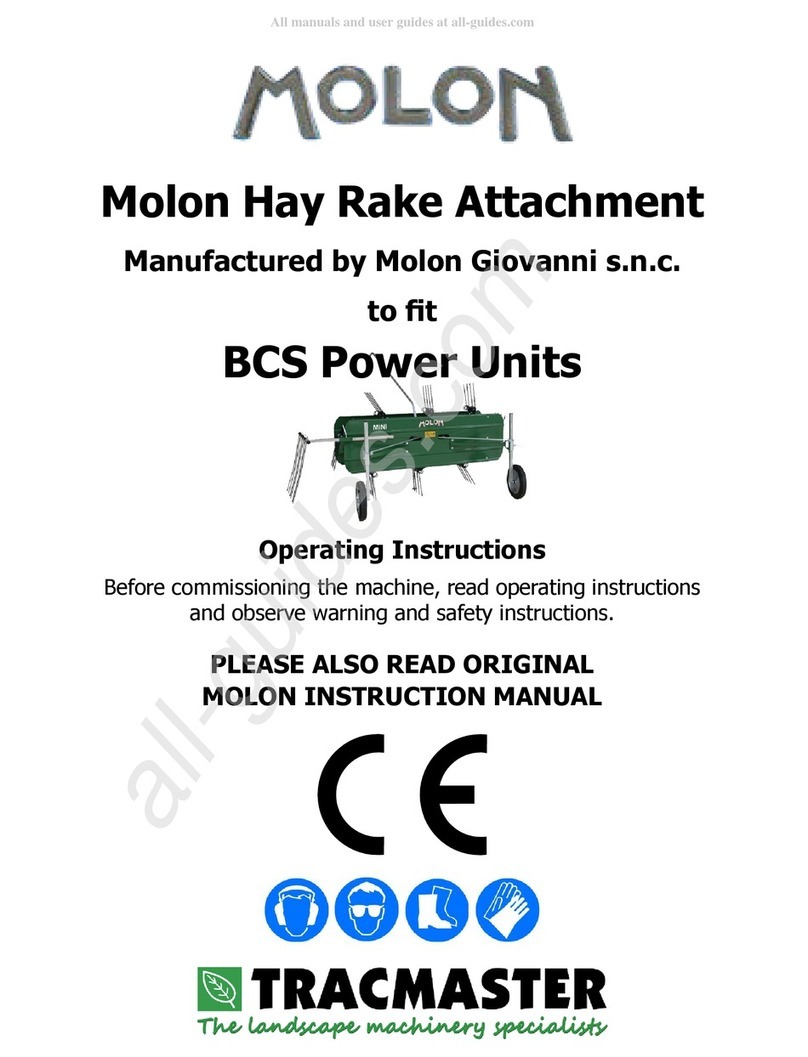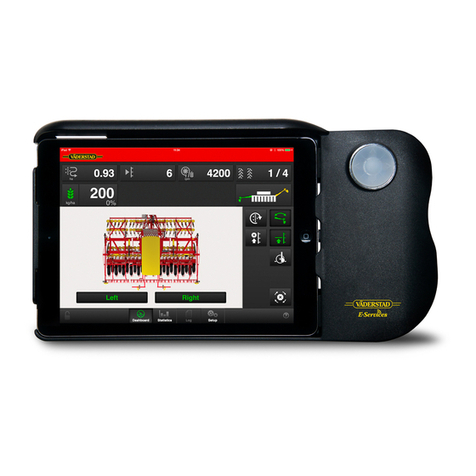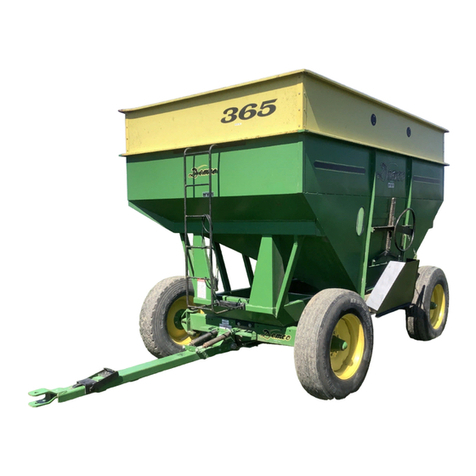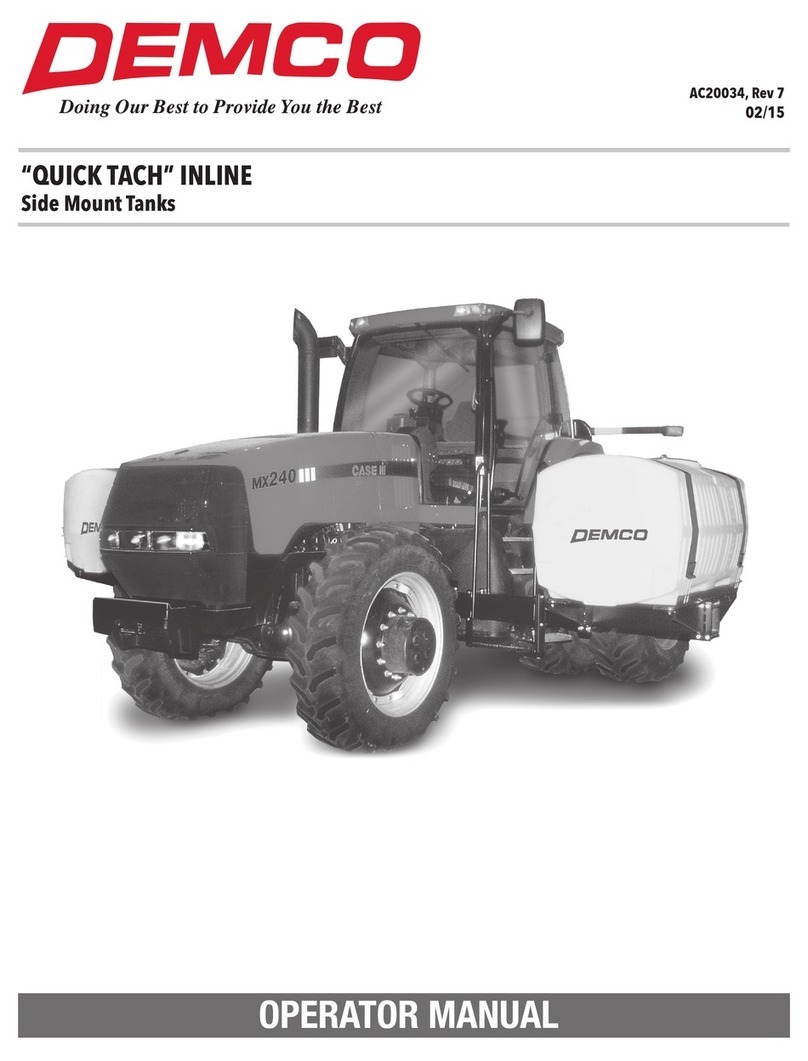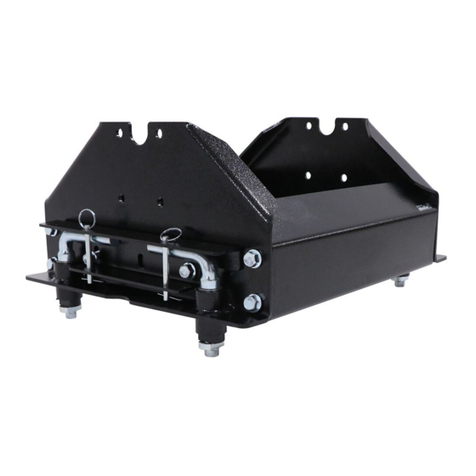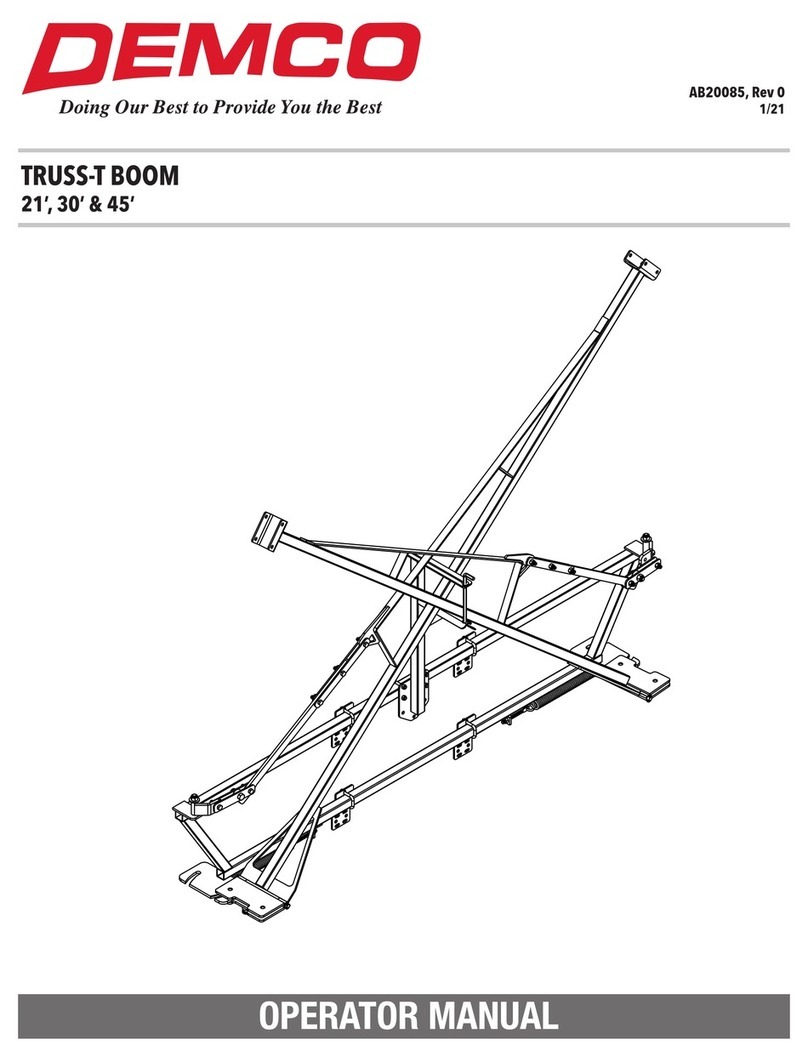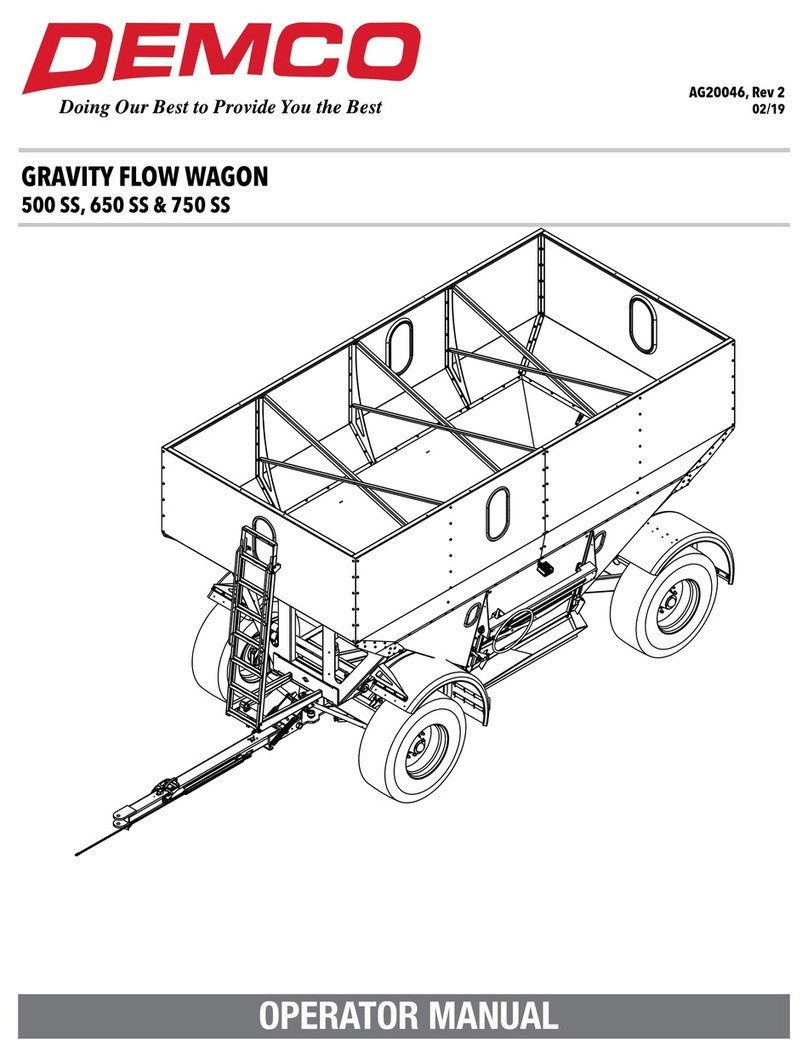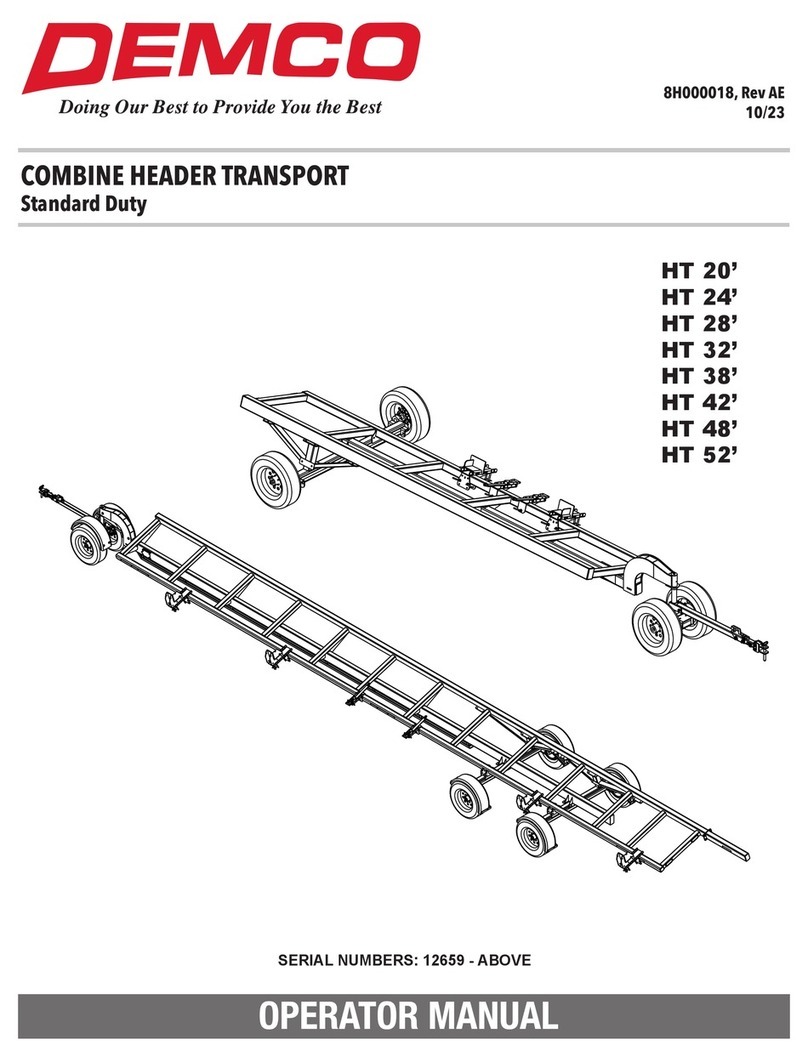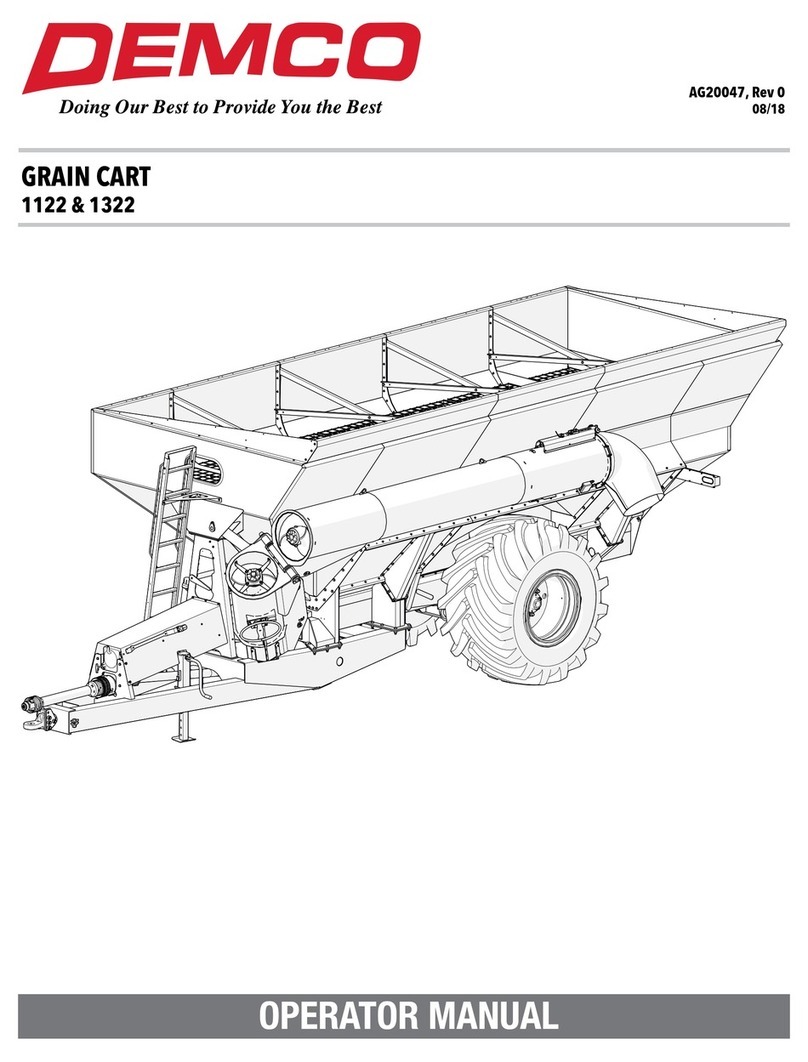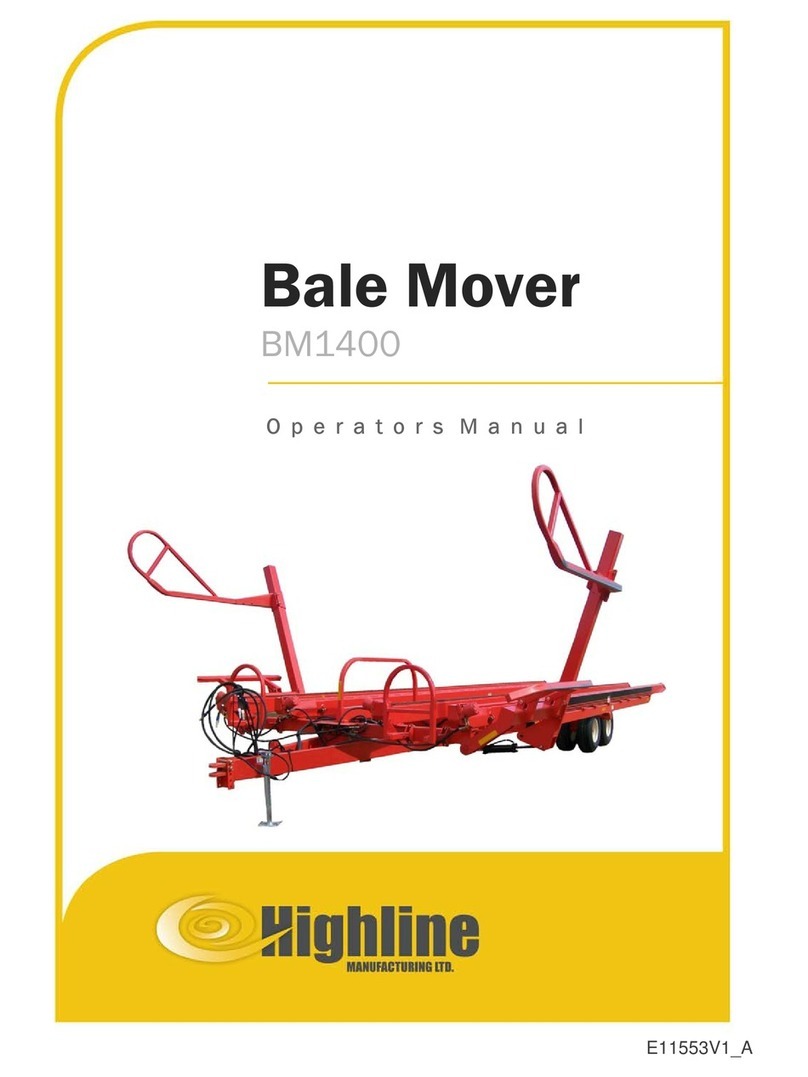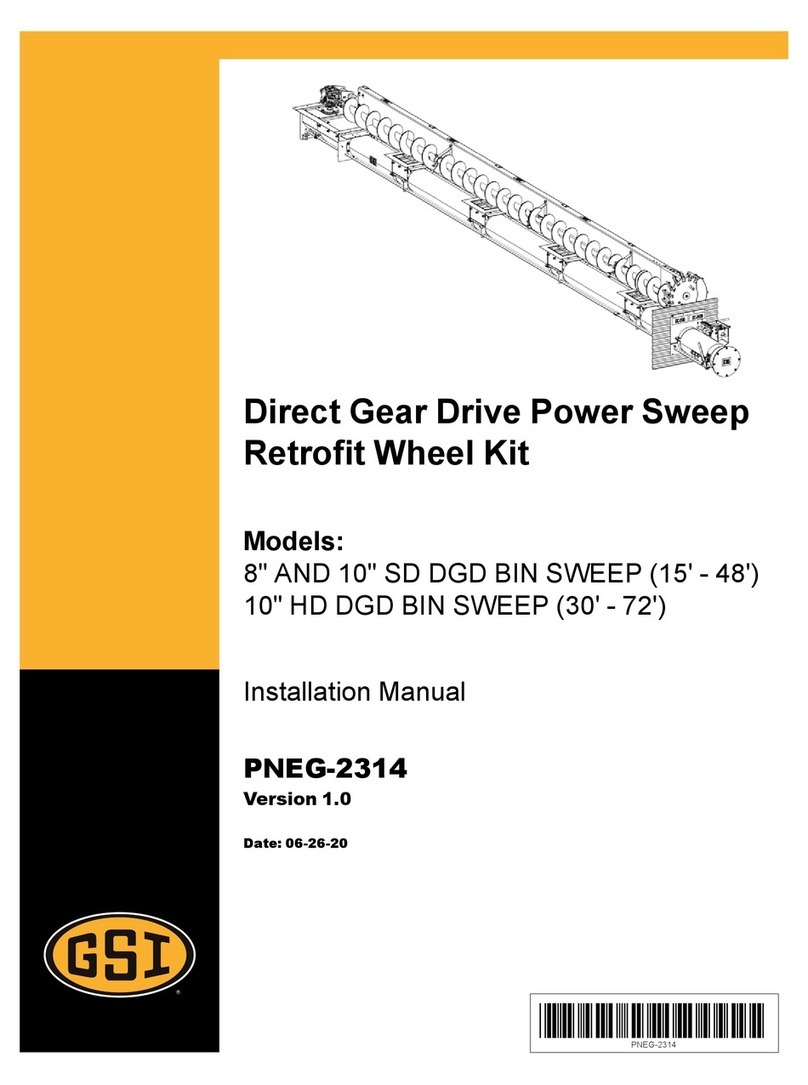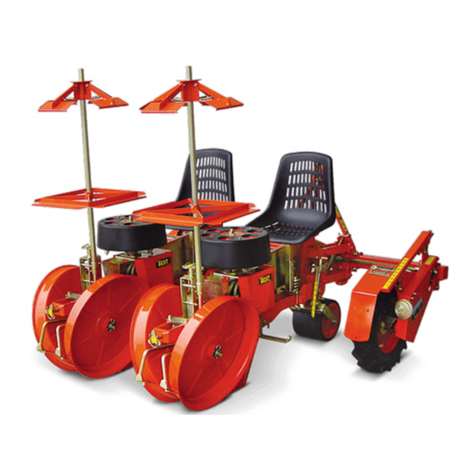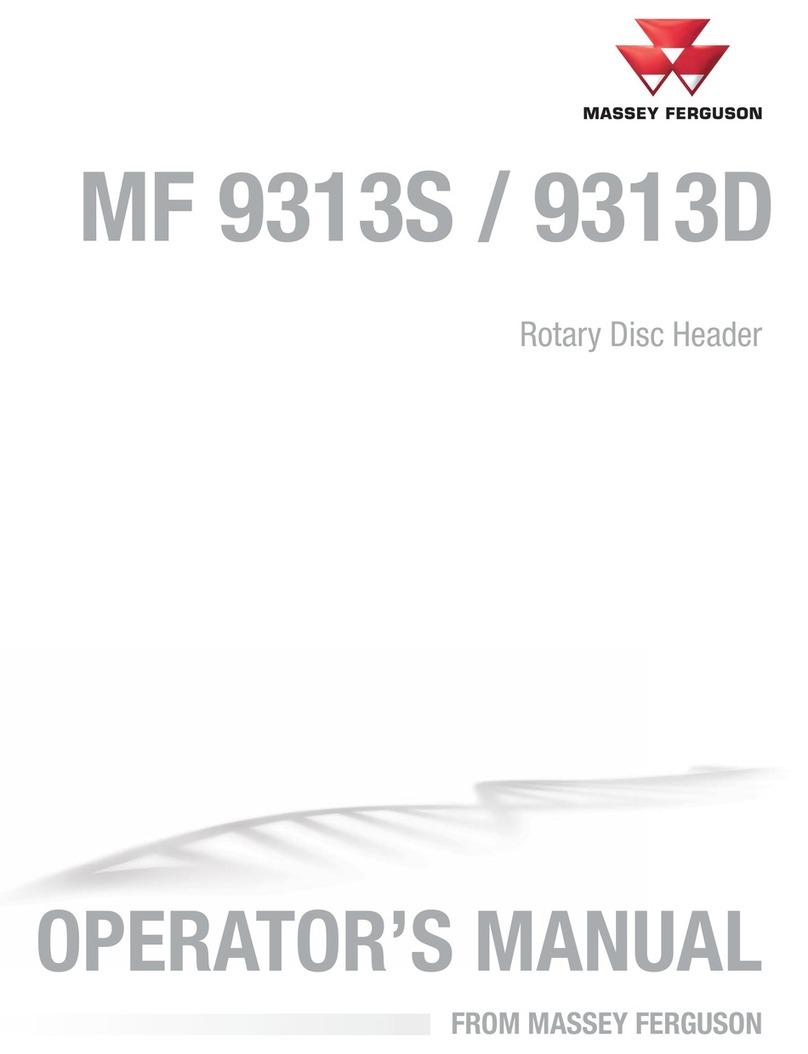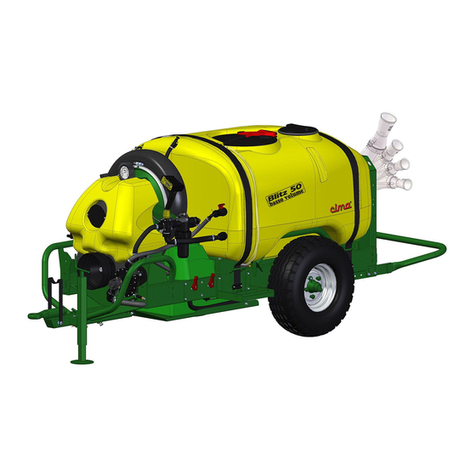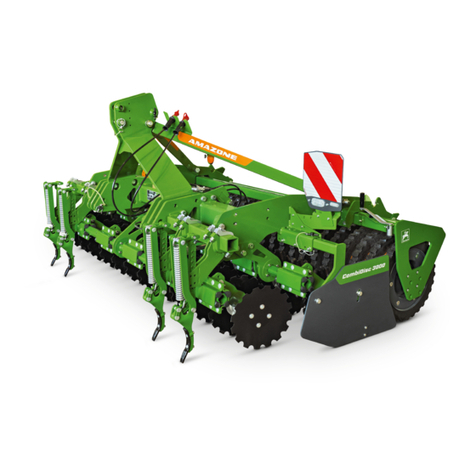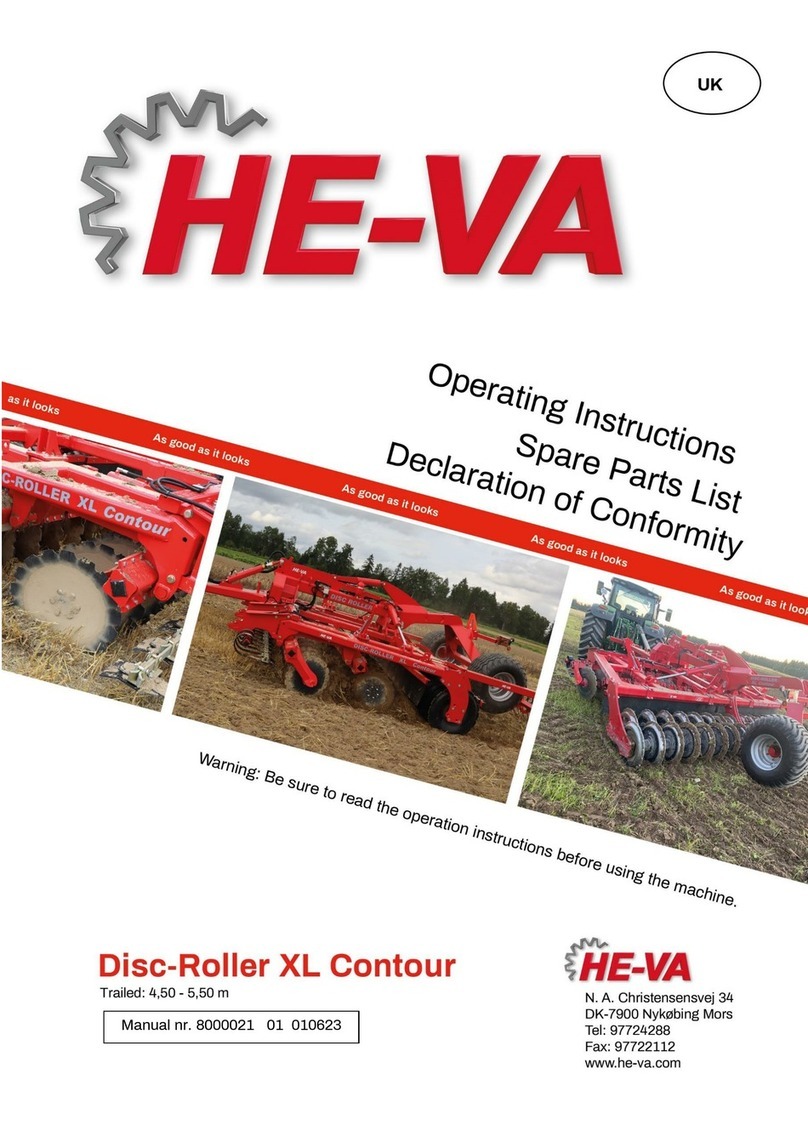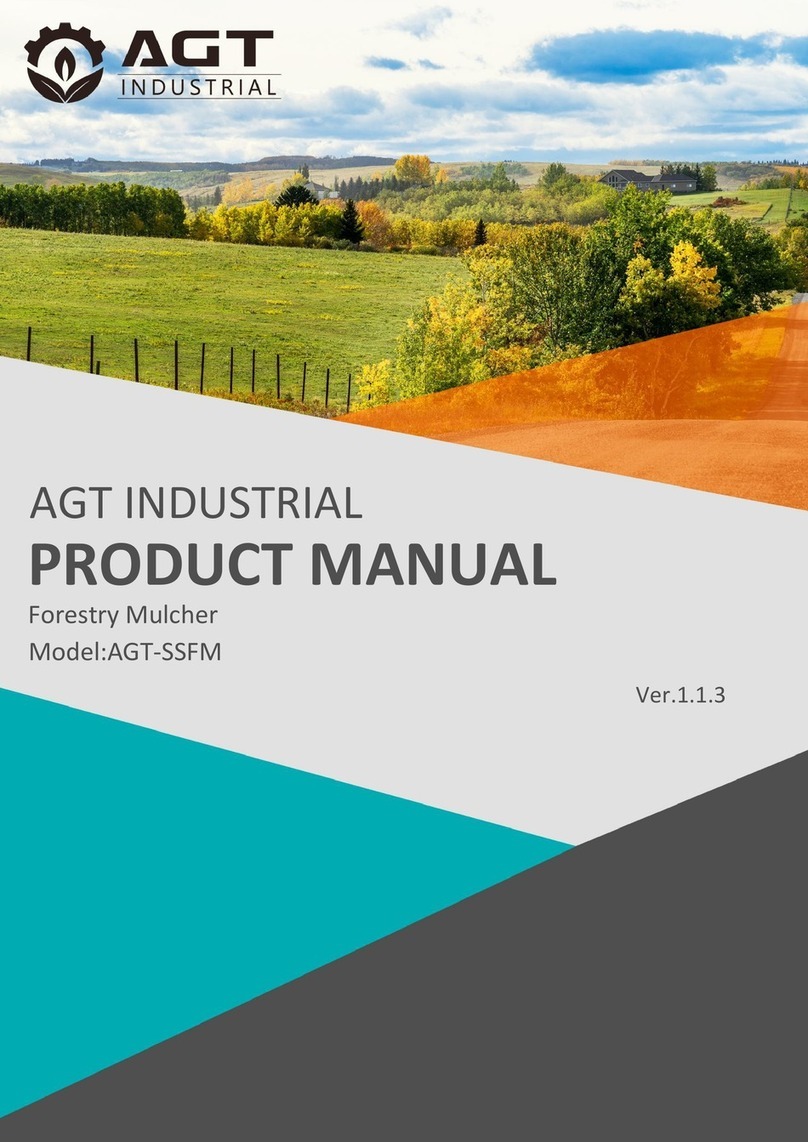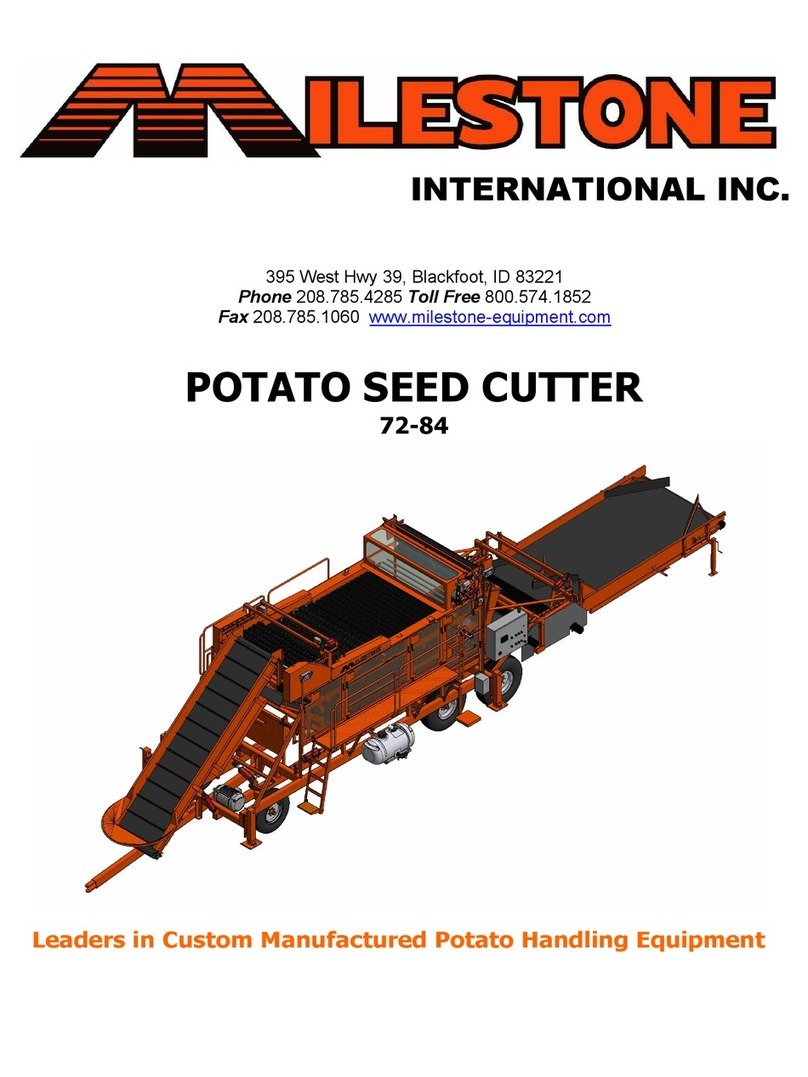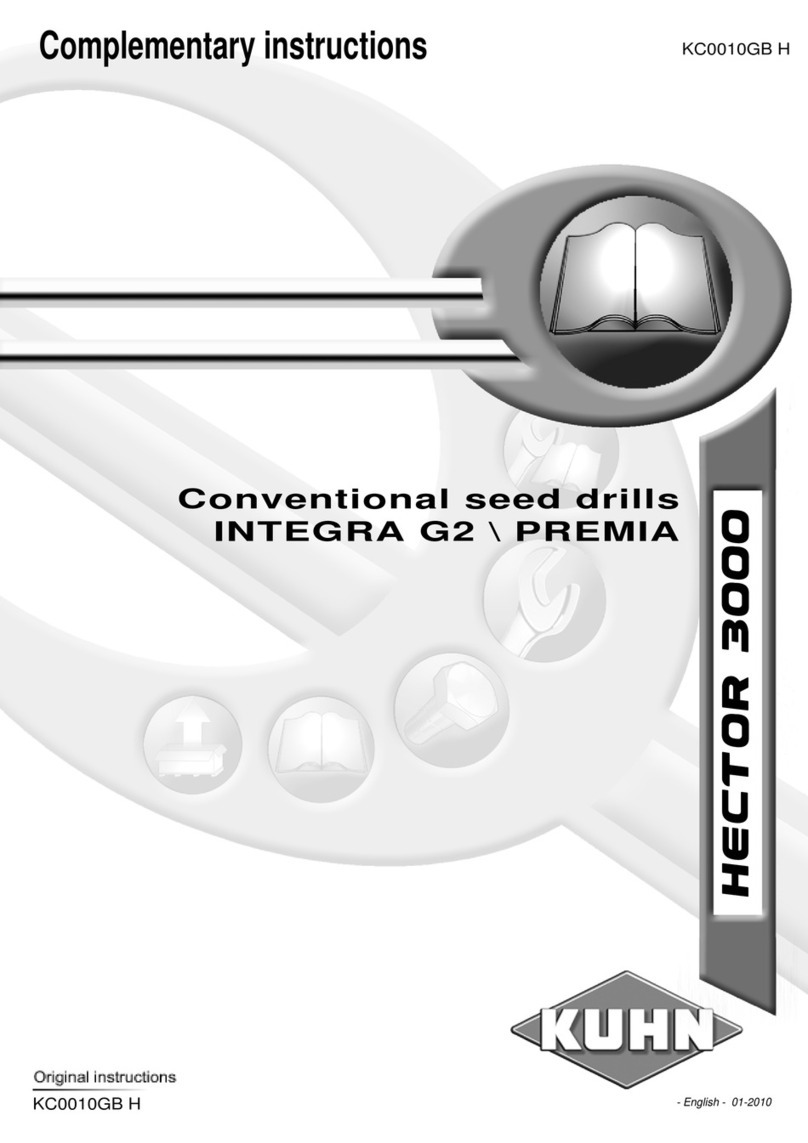
SAFETY
is not qualied to operate the machine. An untrained
operator exposes himself and bystanders to possible
serious injury or death.
• Never exceed limits of a piece of machinery. If its
ability to do a job or to do so safely is in question, DON’T
TRY IT.
• Do not use unit until you are sure that area is clear,
especially around children and animals.
PREPARATION
• Always wear relatively tight and belted clothing to
avoid getting caught in moving parts. Wear sturdy,
rough-soled work shoes and protective equipment for
eyes, hair, hands, hearing, and head; and respirator or
lter mask where appropriate.
• Keep wheel and lug nuts tightened to specied torque.
Assure that tires are inated evenly.
• Give unit a visual inspection for any loose bolts, worn
parts, or cracked welds, and make necessary repairs.
Follow maintenance safety instructions in this manual.
• Make sure there are not tools lying on or in equipment.
• Make sure that brakes are evenly adjusted (if equipped
with brakes).
• Do not allow anyone to stand between tongue or hitch
and towing vehicle when backing up to equipment.
TRANSPORTATION
• Always comply with all state and local laws governing
highway safety and movement of farm machinery on
public roads. Local laws should also be checked for all
highway lighting and marking requirements.
• If equipment is going to be transported on a public
highway, always follow state and local regulations
regarding safety chains. Be sure to check with local
law enforcement agencies for your own particular
regulations. If required safety chains should be obtained
and installed, only safety chains (not elastic or nylon/
plastic tow straps) should be used to retain connection
between towing and towed machines in event of
separation of primary attaching system. Use a high
strength, appropriate size hitch pin with a mechanical
retainer and attach safety chains. Crisscross chains
under tongue and secure to draw bar cage, mounting
loops, or bumper frame.
Safety is a primary concern in the design and
manufacture of our products. Unfortunately, our eorts
to provide safe equipment can be wiped out by an
operator’s single careless act.
Every year many accidents occur which could have been
avoided by a few seconds of thought and a more careful
approach to handling equipment. You, the operator,
can avoid many accidents by observing the following
precautions in this section. To avoid personal injury,
study the following precautions and insist those working
with you, and you yourself, follow them.
In addition to the design and conguration of equipment,
hazard control and accident prevention are dependent
upon the awareness, concern, judgment, and proper
training of personnel involved in the operation, transport,
maintenance and storage of equipment.
In order to provide a better view, certain illustrations
in this manual may show an assembly with a safety
shield removed. However, equipment should never be
operated in this condition. Keep all shields in place. If
shield removal becomes necessary for repairs, replace
shield prior to use.
It has been said “The best safety device is an informed,
careful operator.” We ask you to be that kind of operator.
TRAINING
• Safety instructions are important! Read all attachment
manuals; follow all safety rules and safety decal
information. Failure to follow instructions or safety rules
can result in serious injury or death
• Don’t hurry the learning process or take unit for granted
in becoming familiar with your new equipment.
• If you do not understand any part of this manual
and need assistance, see your dealer. (Replacement
manuals are available from selling dealer.)
• Operators must be instructed in and be capable of the
safe operation of the equipment, its attachments, and all
controls. Do not allow anyone to operate this equipment
without proper instructions.
• Never allow children or untrained persons to operate
equipment.
• Train all new personnel and review instructions
frequently with existing workers. A person who has not
read and understood all operating and safety instructions
SAFETY...YOU CAN LIVE WITH
ATTENTION! BECOME ALERT! YOUR SAFETY IS INVOLVED!
Page 4 8H000019
